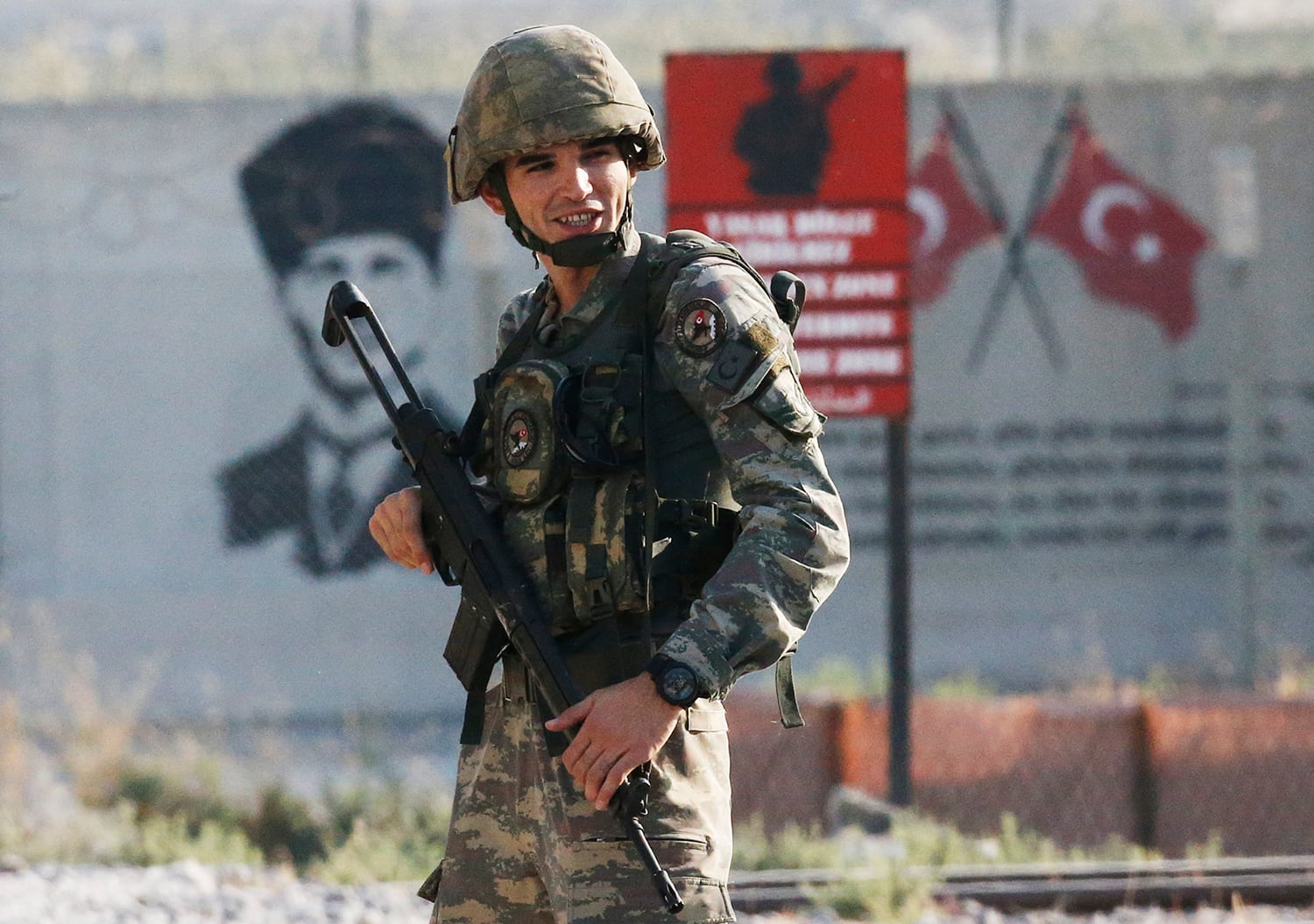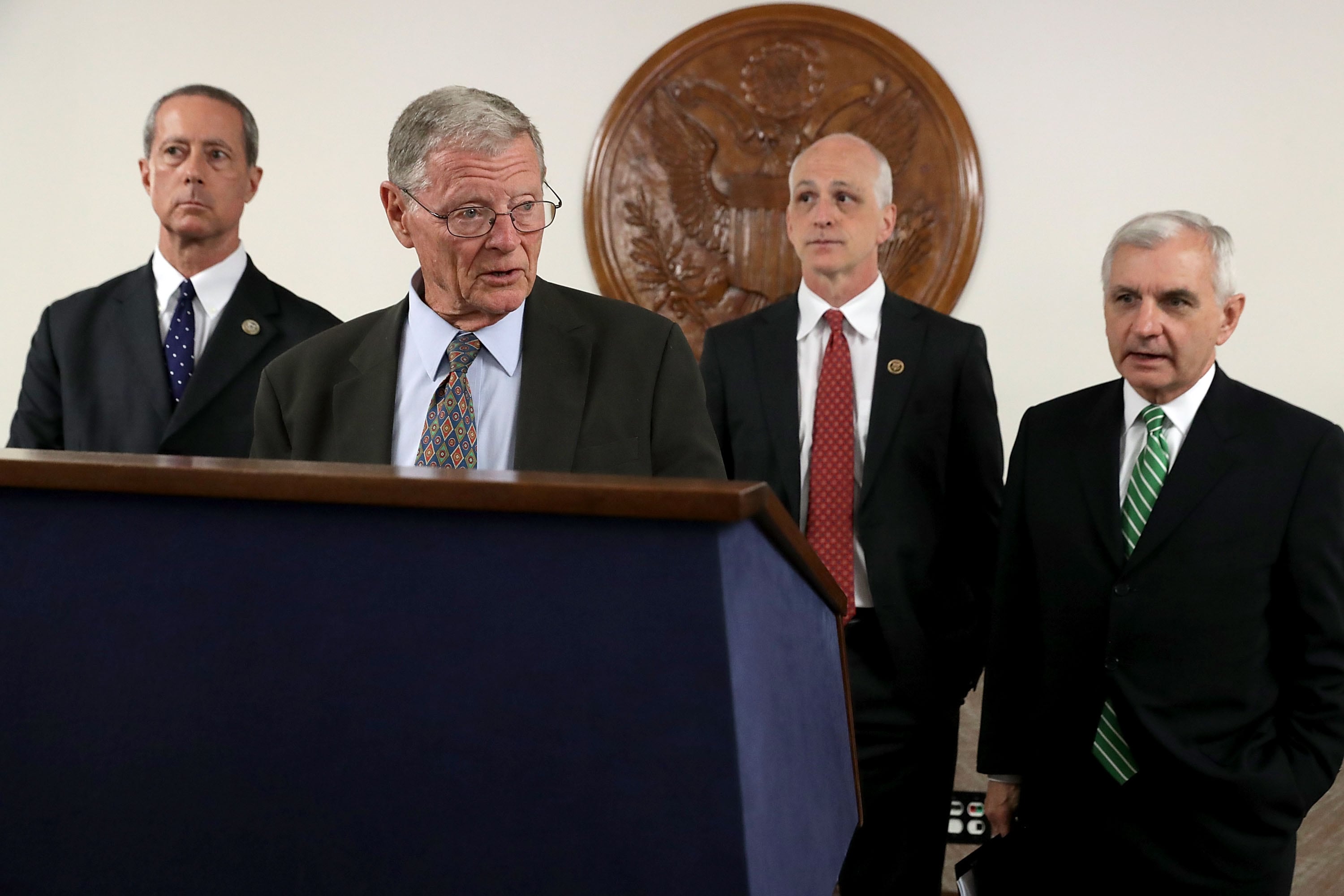WASHINGTON — More than 90 of U.S. President Donald Trump’s fellow Republicans in the House were poised Wednesday to introduce sanctions against Turkey aimed at ending its assault against Kurdish fighters and civilians in Syria — an assault Turkey began after Trump announced he was withdrawing U.S. troops from Syria.
The sanctions announced Wednesday by House Republican Conference Chair Liz Cheney, R-Wyo., include a ban on U.S. military assistance to NATO ally Turkey and, separately, would apply to anyone who provides financial, material or technological support to or knowingly conducts a transaction with the Turkish armed forces, including defense articles, petroleum and natural gas.
This bill also extends the sanctions placed through Countering America’s Adversaries Through Sanctions Act, or CAATSA, on Turkey in response to its purchase of the Russian S-400 Triumph anti-missile defense system.
The House bill follows the efforts of Sens. Lindsay Graham, R-S.C., and Chris Van Hollen, D-Md., who are expected to introduce their version on Thursday.
The House sanctions bill underscored the dissatisfaction with Trump’s decision as the administration scrambles to contain the fallout, including bipartisan criticism that the withdrawal betrays Kurdish allies and benefits Russia, Iran, the government of Syrian President Bashar Assad and the remnants of the Islamic State group.
The administration announced its own sanctions against Turkey this week over Ankara’s offensive in Syria, though those sanctions will include a Treasury Department waiver to allow foreign military sales to continue, a senior defense official said Tuesday. The goal is to allow “ongoing activities” between the U.S. State and Defense departments and their Turkish counterparts, the official explained.
“The idea is to continue official business,” the official said. “We’re seeking to continue to have conversations with the Turks to get them to stop this behavior so those kind of activities are [necessary] and obviously this is a long-term, strong mil-to-mil relationship.”
RELATED

The administration’s sanctions are also expected to fall well short of doing serious damage to an economy still healing from a recession and currency collapse, The Associated Press reported.
The House sanctions ― which would apply to U.S. assets ― target high-level Turkish officials, up to and including its president, vice president, and ministers of defense, foreign affairs, treasury, trade and energy. It would also mandate a report from Trump on the net worth of Turkish leader Recep Tayyip Erdogan.
Trump would be able to delay the sanctions if he certifies Turkey is is not operating in Syria, east of the Euphrates River and west of the Iraqi border, without the support of the United States; and if Turkey has withdrawn its troops and proxy forces from areas occupied by Turkey during the operation that began last week.
The bill’s co-sponsors include Republican leader Rep. Kevin McCarthy of California, Republican Whip Rep. Steve Scalise, of Louisiana, and House Armed Services Committee ranking member Rep. Mac Thornberry, R-Texas.
The Turks, according to Cheney, “have created a situation where we risk the resurgence of ISIS, where the Turks have gone in and we see evidence of atrocities being committed, and where our allies, the Kurds, frankly, are facing what looks like a betrayal from the United States that could have very negative consequences and impacts for us globally.”
RELATED

The House’s proposed sanctions are tougher than the administration’s, though Cheney said Republicans will continue to work with Trump. She said a meeting at the White House was set for Wednesday afternoon.
The House bill comes after the United Kingdom announced it will halt arms sales to Turkey over the Syria crisis, joining the Czech Republic, France, Germany, Finland, the Netherlands and Norway.
Turkey imports 60 percent of its weapons from the U.S., followed by Spain and Italy, and it is the world’s 13th biggest arms importer.
According to numbers compiled by the Center for International Policy, American-made equipment currently operated by Turkey includes 333 fighter aircraft, 2,400 tanks and 31 transport aircraft. Turkey has been a reliable procurer of ammunition and missiles from the U.S and, until earlier this year, had been a key member of the F-35 Joint Strike Fighter consortium.
The Associated Press contributed to this report.
Joe Gould was the senior Pentagon reporter for Defense News, covering the intersection of national security policy, politics and the defense industry. He had previously served as Congress reporter.
Aaron Mehta was deputy editor and senior Pentagon correspondent for Defense News, covering policy, strategy and acquisition at the highest levels of the Defense Department and its international partners.







